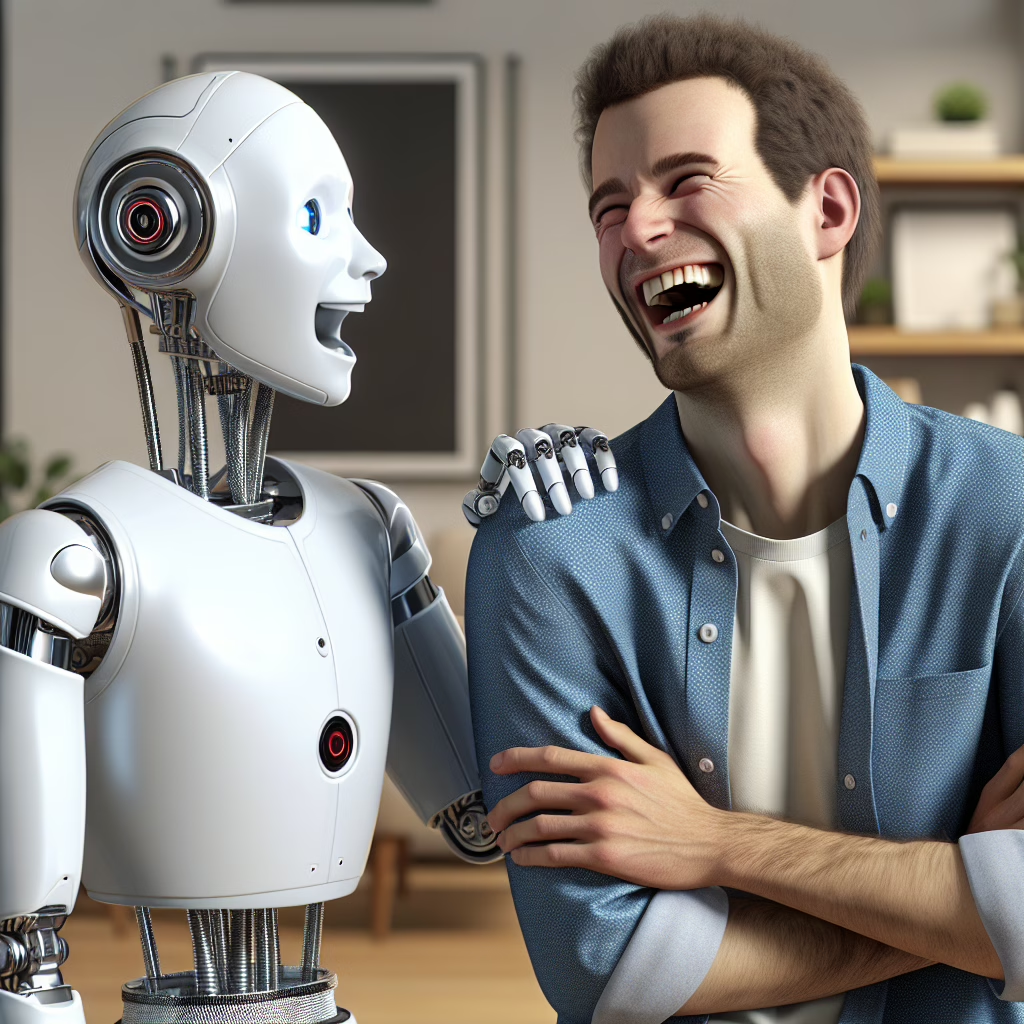In a world where technology is advancing at breakneck speed, it’s easy to overlook the quirky nuances of our relationship with robots. The recent discussions around robot abuse might seem alarming at first glance, but let’s take a moment to appreciate the silver linings and the potential for growth in this brave new world.
First off, let’s acknowledge that our interactions with robots are evolving. The concept of ‘robot abuse’—while sounding like something out of a dystopian novel—actually highlights our growing awareness of the ethical implications of artificial intelligence. It’s almost as if we’re in a relationship with our gadgets, and like any relationship, it has its ups and downs. Sure, we might have a tendency to treat our robotic companions a bit harshly, but isn’t that just a sign of how much we care? After all, we wouldn’t bother to interact with them at all if we didn’t see their potential!
Moreover, the discussions surrounding robot abuse serve as a catalyst for important conversations about empathy and responsibility. As we integrate robots into our daily lives, we’re forced to confront our own behaviors and attitudes. This is a fantastic opportunity for personal growth! Think about it: if we can learn to treat our robotic friends with kindness, perhaps we can extend that kindness to our fellow humans as well. It’s a win-win situation!
Let’s not forget the entertainment value of our robotic interactions. Who hasn’t chuckled at a viral video of a robot getting a little too much ‘love’ from its human counterpart? These moments remind us that while robots may not have feelings in the same way we do, they certainly bring a sense of joy and humor to our lives. It’s a delightful reminder that technology doesn’t have to be all serious business; it can also be a source of laughter and fun!
As we delve deeper into the topic, it’s important to recognize the strides being made in the field of robotics. Engineers and developers are continuously working to create robots that are not only more efficient but also more relatable. The more we interact with these machines, the more we understand their capabilities and limitations. This, in turn, fosters a sense of respect and appreciation for the technology that surrounds us.
Furthermore, the idea of robot abuse opens up a treasure trove of creative possibilities. Think of the stories, films, and art that could emerge from this concept! The juxtaposition of human emotion and robotic logic can lead to fascinating narratives that challenge our perceptions of both. Who knows? We might just end up with a new genre of storytelling that captivates the imagination and sparks meaningful discussions about our future.
But let’s not get too carried away with the doom and gloom. The reality is that robots are here to stay, and they’re becoming an integral part of our society. From household chores to complex surgeries, robots are proving their worth in various fields. Embracing this technology means embracing the future, and that’s something to be excited about!
So, what can we do to ensure a positive relationship with our robotic companions? First, let’s practice mindfulness in our interactions. A little kindness goes a long way, even if it’s directed at a machine. Secondly, let’s engage in conversations about the ethical treatment of robots. By discussing our behaviors and attitudes, we can create a culture of respect that benefits both humans and machines.
Lastly, let’s celebrate the quirks of our robotic friends! Whether it’s a malfunctioning vacuum cleaner or a chatbot with a sense of humor, these moments of imperfection remind us that technology is a work in progress. Instead of viewing robot abuse as a negative, let’s see it as an opportunity to learn and grow together.
In conclusion, while the term ‘robot abuse’ may raise eyebrows, it also opens the door to a wealth of positive discussions and developments. By embracing our relationship with technology, we can foster a future where humans and robots coexist harmoniously. So, let’s keep the conversation going! What are your thoughts on our interactions with robots? Do you think we’re heading in the right direction? Share your views in the comments below!

